It’s in his Pracharak genes! Reminiscing efficiency as a CM of Gujarat, Narendra Modi stands as a robust PM of India
Narendra Modi - A Swayamsevak Leader:
Shri Narendrabhai Damodardas Modi was born in a lower middle-class family at Vadnagar in the Mehsana district of Gujarat on 17th September, 1950. He joined as a swayamsevak of the Rashtriya Swayamsevak Sangh under the persuasive influence of several tall Sangh leaders, but most importantly motivators like late Lakshmanrao Inamdar aka “vakilsaab”. Shri Narendra Modi later left home to become a Sangh Pracharak and he remained a ‘pracharak’ for a long period from 1973 to 1988 until he was deputed to work as an Organising Secretary of the State and Central BJP till almost upto 2001. He had in his family his old mother – Heeraben, four married brothers – Somabhai, Amrutbhai, Prahladbhai and Pankajbhai – and a married sister – Vaasantiben. His image has been absolutely clean, his intentions absolutely honest, his outlook very simple, and his behavioural pattern and dealings absolutely transparent.
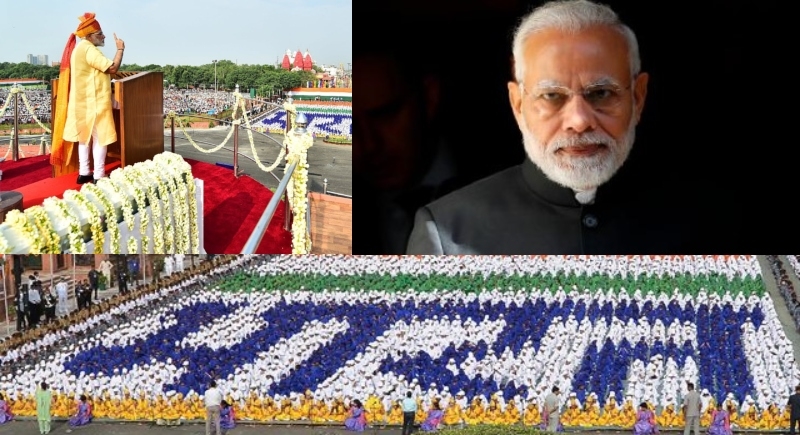
The political signal is that there is a ‘raison d’etre’ for Gujarat development, and it is Narendra Modi. What is the stuff that he is made of? How did this happen? The observers look at the personality of Narendra Modi. What is the stuff that he is made of?
What is it that Gujarat suddenly became an important imitation model? What is it that Shri Narendra Modi too became imitation personality? How has Gujarat become so advanced State? The question is, what is the secret of the Gujarat success. The secret can be discovered in the following strategic platform: a) honest implementation of the policies and programmes, b) preparing plans of development with socio-cultural outlook with economics contents, c) clean image and its assurance of the political leadership i.e. the CM, and d) the cultural bondage and influence of the social organization which has influenced the course of action and the psyche of the leaders while designing economic policies and programmes for the State.
The ‘Prachaarak’ in him dominates the administrator in him.
Living a simple way of life, Modi exhibits the qualities of an excellent leader. Feeling the pulse of the people, his personal integrity is beyond doubts. Giving his entire life for the nation, as a youth, Modi lived a very hard life making himself comfortable with getting involved in social and public activities. Modi always looked beyond Gujarat, for him, Nation first was more important.! As a prachaarak, he was responsible to plan, organize and execute the scheme or the event. Preparing everything with minute details, the end-result for the same was excellent. He accomplished his difficult work with great humour relaxing the possible tensions. Releasing the tensions and unnecessary seriousness was his great ability in doing things. He believed in what he did or accomplished. Having faith in God, Modi believes in humanity and its dimensions.
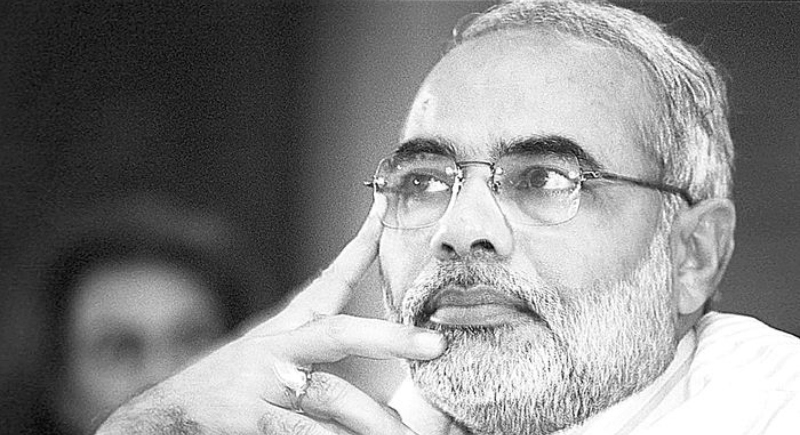
Modi’s destiny with the RSS and the statutory governance in Gujarat was the translation of his ideas and methods which he drew from all these beliefs, makings and convictions. Swagat -on line, Chintan-Shibir, Krishi-Mahotsav, Kanya-Kelavani, Beti Bachao Aandolan, Shala-Praveshotsav, Jyotigram Yojana etc were the ideas and modules which he drew from Sangha patterns. He could understand bureaucracy with all its strength and limitations. He did not talk of corruption but created an awareness and threat- a real one about it. He tried to build a structure or a system of public administration in every Department in the governance dissuading the corrupt ones to refrain from it or no scope was left for them to achieve their ill-wills. This was a serious attempt at all levels. He brought in the change in the oulook of traditional techno-phobic pattern into modern techno-suave image of governance. He used the technology for the betterment of the poor. NM did not ignore the growing and spreading influence of the globalization of every field of activity in the society and the world. Modi’s approach in tacking the issue of terrorists and their activities in Gujarat and the country elsewhere, has been a bone of contention with full of controversial media trial. The courage with which he dealt the individuals involved in skirmishes and ambushing, created more furore engulfing the public on a wider scale debate. He made distinction between crime and anti-national and anti-social terrorism. He invited wrath of the legal luminaries and even the judiciary. Modi has drawn his abilities and all his traits from his association with Rashtriya Swayamsevak Sangh. Modi is the product of RSS thought. Its national spirit.
Modi is the manifestation of Sangh ideology viz., cultural nationalism. He weeps for poverty and that is where he draws his strength to work for its eradication. He believed in the cultural unity of the people of India. People in Gujarat are no different from people residing in other states. Therein he sees the integral humanism of Pt. Deendayal Upadhyaya. Shri Narendra Modi’s faith in this integral humanism has geared his drive for growth.
Modi’s political plans and programmes:
Shri Modi, by qualification (externally earned degree) M.A. (Political Science) Gujarat University, Ahmedabad is a political scientist. He has developed his own thinking of policy making function as how to bring about economic development in the state. As a Chief Minister of Gujarat since 2001 he had his own norms and ideas on different policy making planks. This could be considered as initiatives in the following fields viz.,i) Economic developmental goals, ii) Political initiatives and programs, iii) Public administration iv) Social awakening, v) Cultural origins and programs.
Owing a conviction of the new Government in 2001 in Gujarat, it was believed that economic development of the people and the region was essentially a political directive. The achievement of economic goals was through political initiatives and therefore the entire policy making was required to be a political initiative or political program. The government and the Chief Minister in particular insisted on certain work culture to be developed both amongst the political executives and the administrator’s class.
Believing that technology can alone foster e-Governance and that good governance can only happen through an efficient, proactive and citizen-friendly system, Shri Modi leading Government of Gujarat initiated a massive training programme to reorient over 5,00,000 state government employees and to strengthen the administrative machinery.
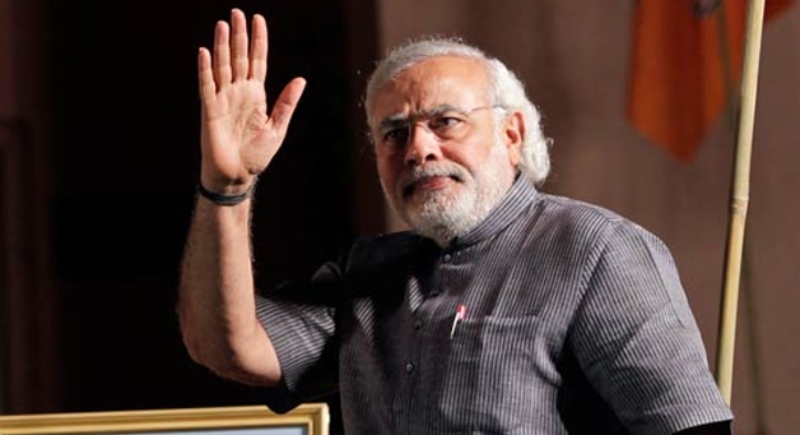
Starting the unique initiative, Karmayogi Maha Abhiyan (Literally meaning a mega campaign to transform employees into sincere works), was all about harnessing the strengths of government employees and sensitizing them towards their accountability as public servants. Gujarat took the efforts of training the karma charis (employees) with self motivation, communication skills, an empathetic response, a proactive attitude, cost consciousness, team work as no government employee ever had any formal training in these essential values of work.
The Karmayogi Maha Abhiyan consists of Chintan Shibirs (reflection workshops for profound thinking) as well as E-Governance. Chintan Shibirs are annual retreats for ministers and senior government officials for brainstorming, progress review, goal setting and developing a collective vision while V-Governance is a unique training initiative for Vibrant Governance through ‘change in mind-set’. In addition to government officials, over 2.5 lac teachers too have undergone the karma yogi training.
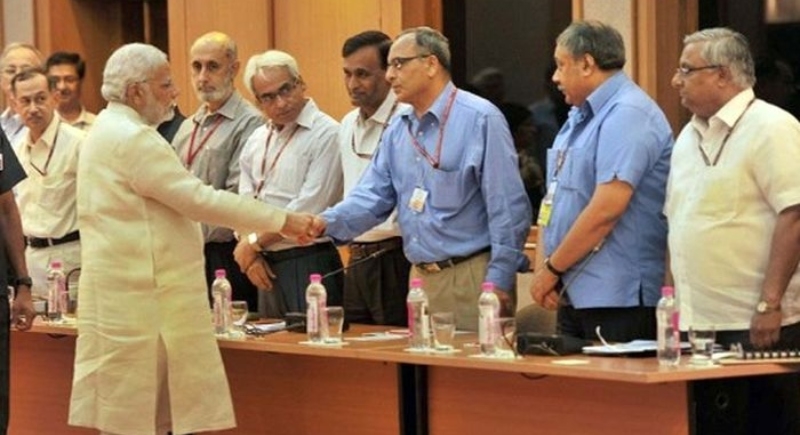
Over a period of time, Gujarat transformed an ‘asarkari’ (non-governmental) mode of functioning to become “asarkari” (effective) developing positive attitudes, and citizen friendly nature. The meaning of political initiative can be summarized as following. A) Political leadership with personal integrity and high degree of commitment to Development; B) Disaster management decision making competence; C) Responsive political leadership; D) Youthful and energetic; E) Innovative thoughts; F) Determination to implement; G) Astuteness; H) Skilled orator; I) Deft negotiator; J) Acceptability by the people; K) Lovable and affectionate; L) Across villages and cities; M) Ability to research spirits of economy, livelihood; N) Reconstruct infrastructure; O) Reorienting and reorganizing administrative structure; P) Identifying genuine needs of the citizens: a. Water, b. Education, c. Human resource development, d. Power-electricity e. Security sense confidence; Q) Good infrastructure – Physical and social (welfare schemes); R) Involving private sector 9crises, earth quake etc.) by persuasion; S) Attention to posts, roads, railways, LNG terminals, gas distribution, water distribution growth plans; T) Upgrading civic amenities – drainage etc., cleanliness, pollution free; U) Tribal/backward classes special case; V) Team work and good work culture; W) Justice accelerated (evening courts); X) Application of high technology e-Governance; Y) Direct link with citizens; Z) Faith in “Good governance is good politics”.
Modi as a strategist:
Shri. Modi’s brilliance and efficiency was evident as he was a full-time worker (pracharak) of the voluntary organization i.e. Rashtriya Swayamsevak Sangh (RSS) as a “Pracharak” he was expected to be an event manager. As a ‘Pracharak’, Shri Modi was supposed to make plans and proposals and rightly execute them which proved to be very beneficial as he became the All India General Secretary of the political party (Bharatiya Janata Party).
By and large Shri Modi proved to be successful as he discharged his responsibilities perfectly. He heavily relied on his personal qualities and initiatives after assuming the state’s political and governmental reins of power. Shri. Modi while managing affairs kept before him these dimensions viz., i) policy makers, ii) citizens, iii) government. Together with his govt Modi learnt the linkages which was the cause and effect and result in the process of management.
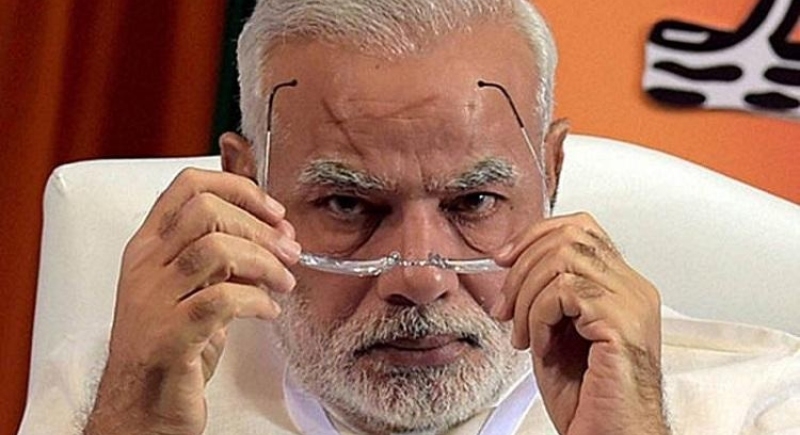
As stated earlier, he started his life with the Rashtriya Swayamsevak Sangh (RSS), a socio-cultural organization engaged in building a civil society in India. He was a third year trained officer in RSS which focused upon social and dedication and nationalism to its cadres and participates in politics only occasionally, most often by deputing its pracharaks to BJP and other supplementary organizations. India’s former Prime Minister Mr. Vajpayee (1998-2004) and the former Dy. Prime Minister Shri. Advani were among those deputed to politics (i.e. the then Bharatiya Jan Sangh and presently the BJP) by the RSS.
During his early years with the RSS, Shri. Modi played an important role on several occasions whenever deputed, including the 1974 anti-corruption agitation and during the harrowing 19 month (from June 1975 to January 1977) long ‘emergency’ when fundamental rights of Indian citizens were suspended. Shri. Modi kept the spirit of democracy live by staying underground for the entire period and fighting a spirited battle against the fascist way of the then government.
Shri. Modi was a ‘Vibhag Pracharak’ in RSS from 1973 to 1988. In 1988, he was deputed as the General Secretary of the BJP’s Gujarat unit and took up the challenging task of energizing the party cadres in right earnest. Beginning to attain political gains the party formed coalition in April 1990 but the partnership fell apart with few months. BJP came to power with a two-third majority on its own in 1995, since then, the BJP has been the ruling party in the state of Gujarat. Between 1988 and 1995, Shri. Modi was entrusted with the responsibility of organizing two crucial national events also the Somnath to Ayodhya Rath-Yatra (a long march) of Shri. Advani- 25th September 1991, and a similar march from Kanyakumari (the Southern most part of India) to the troubled Kashmir in north.
Modi as a driving force in political programming:
In October 2001, Shri Modi was asked to rule the state govt most importantly as Gujarat was facing problems because of several natural calamities in the preceding years, including the massive earthquake in January 2001. Once again Shri. Modi took the bull by the horns and decided to convert the adversities into an opportunity. With a clear vision of his own for the future of the state, he re-organised the government’s administrative structure, embarked upon a massive cost-cutting exercise and successfully put Gujarat on the road to growth in a short period of three years. In his first three years, Modi successfully reduced the fiscal deficit of the State exchequer by fifty percent and had slashed the losses of the huge public utility functional agencies (like Gujarat Electricity Board), besides making available electricity for domestic consumption in over 5,000 villages.
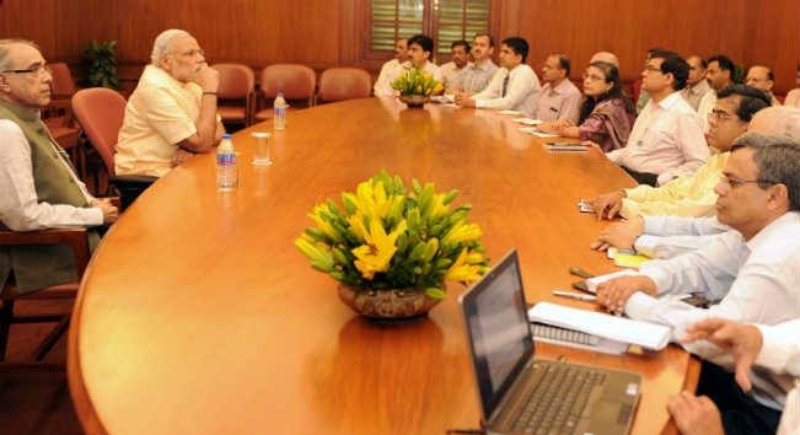
Perhaps the most important achievement of his government had been successful raising of the height of the crucial Narmada Dam from 95 to 110.64 meter in two quick bursts of activity, which lasted for about two months each. The increased height has resulted in waters finally flowing to practically all parts of the state and commissioning of the hydro-electric power generation facility at the dam. When the Narendra Modi government was sworn-in on 22nd December 2002 (for the second time), the economy of Gujarat was reeling under the adverse effects of several natural calamities, including a gigantic earthquake in January. Having put the economy back on an even keel in a short period of three years, the government today has reason to feel sanguine about its performance.
In December, elections were held a few months ahead of schedule and the in a house of Narendra Modi government was voted back to power with a massive majority of 128 in a house of 182. Skilfully wading his way through the onslaught of a massive slander campaign unleashed by the opposition Congress party, Modi dealt a convincing and crushing defeat upon the principal opposition party, the magnitude of which stunned friends and foes alike.
Modi as a political administrator:
Popular and progressive, tech-savvy and a true democrat, Shri Modi had sworn in as the Chief Minister of Gujarat for the second time on December 22, 2002 becoming one of the most easily accessible political leaders in India.
A leader who believes in team work, Modi has launched an ambitious training programme for the 500,000 government employees in Gujarat. A true Karma yogi (doer), Modi refused to be cowed down by disasters and disturbances and is successfully leading his state on the path to economic growth. Widely regarded as a youthful and energetic leader with innovative thoughts, Shri. Modi has successfully communicated his vision to the people of Gujarat and has been able to impart faith, trust and hope among the 50 million people of Gujarat. With the successful conclusion of the Vibrant Gujarat Summit in January 2005, image of the state as a preferred investment destination among global investors has taken a quantum leap.
A wide cross section of the people of Gujarat continue to adore Shri. Modi as an able and visionary leader who is effectively, substantially, significantly, transparently and convincingly uplifting the quality of their lives. A skilled orator and a deft negotiator, Shri. Modi has earned the love and affection of people from villages and cities alike. His following spans people belonging to every faith and religion and every economic strata of the society.
(Source: www.gujaratindia.com/whos-who/chief_ministers_gujara2.htm)
Prof. Maria Misra in her book titled “Vishnu’s Crowded Temple” wrote on the characteristics of Mahatma Gandhi. Her interpretation of Mahatma Gandhi can be no different to Shri. Modi. It is applicable to Shri. Modi as well she states; “Throughout his (Gandhi) ascendancy Gandhi gained his strongest support from these essentially conservative groups. His populist vision of village democracy in particular resonated with the better-off farmers. While they had learnt to appreciate the state as a source of patronage and resources, they were deeply suspicious of further intrusion. For merchants, traders, artisans and petty clerks, known for their piety and jealousy of more privileged and westernized elements, the coming of a modern nation-state was a dubious blessing which might ultimately lead to their disappearance as a distinctive social and cultural group. In Gandhi, both the rural and urban little men saw a national leader in their own image: a compelling political vision of an India imbued with their values, not those of the godless and materialist West.
Gandhi’s ambiguous endorsement of the caste system and the lure, therefore, of continuing dominance over the poor, proved irresistible to those eager for prestige within the conventional caste hierarchy.
Analysing Modi:
The question is, does Shri Modi fit the bill? While considering Shri Modi as an individual and where does he come from? The answer is obvious that he hails from a Non-Governmental Organization (NGO) Called Rashtriya Swayamsevak Sangh and this NGO is engaged in building leadership platform.
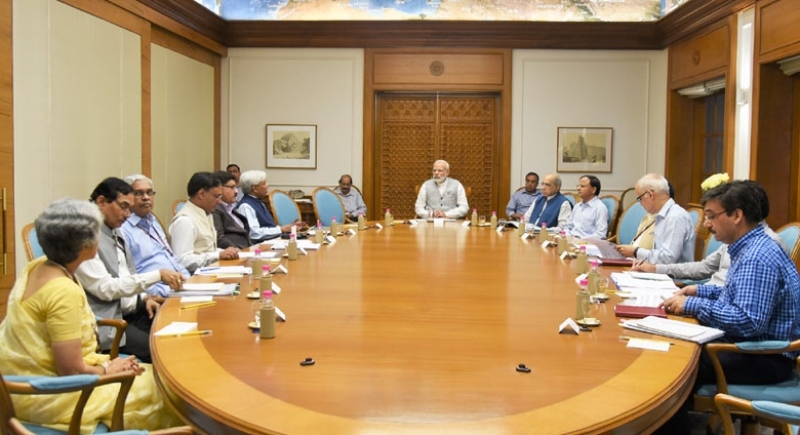
The founder of RSS is reported to have maintained that RSS is supposed to lead the society and our nation and for this the entire society need not be RSS. The very purpose of RSS for the very existence of the RSS aims at producing leadership which may be a handful of individuals who possess the qualities of leadership. Shri. Modi was a “Prachaarak” in RSS and had undergone rigorous physical training. In the corporate terminology, Shri. Modi was a HRD (Human Resource Development) Manager and he had acquired the knowledge and the training to identify and pick up efficient persons and place them in the seat of responsibility.
Shri. Modi as Chief Minister had deployed all these qualities to make the central government machinery work efficiently. Shri. Modi can be said to be product of RSS, because Modi as a Chief Minister appears to have full confidence in the competence of his Council of Ministers. He himself was convinced that the people of Gujarat, the government of the state and the bureaucracy under it all were fully competent to grow with full vigour. The people of the state seem to have reposed full faith in Shri. Modi because of the personal integrity, selfless attitude tremendous enthusiasm, novelty imagination wily political predictions, the affection of people across political party lines and ideologies, all these factors were beyond doubts. Shri. Modi’s determination of trying to achieve the laid down goals of development was appreciated and even the opposition political parties admit and respect the personal integrity and honesty of him as an individual.
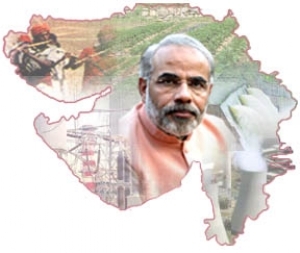
Shri. Modi’s experiment of social stratification through electioneering appeared to have emerged successful to a large extent. Shri. Modi had a subtle knowledge and understanding of it. Stratification is a term used to characterize a structure of inequality as it is a situation where individuals are in differentiated structural positions and such positions are in hierarchical standards.
Talcott Persons a renowned sociologist stated in his essay “An analytical approach to the theory of social stratification”, published in 1940 (page 841-849), “The status of any given individual in the system of stratification in a society may be regarded as a resultant of the common valuations underlying the attribution of status to him” in dimensions such as achievements, possessions, authority, and power. “Social stratification is at the core of the society. ‘Social stratification is a social division of individuals into various hierarchies of wealth, status and power.”
(Source: An article by Stephen L. Morgan from Encyclopaedia Britannica)
According to Mauro F. Guillen, “economic sociology which can be considered as application of social stratification and organizational theory and the sociology development which studies the organization of economic activity. According to him “sociology emerged as a science geared towards providing an institutionally savvy and culturally rich understanding of economic life.” He further submits three postulates of the comparative approach to economic sociology.” i) Ideological change precedes or at least goes hand in hand with economic change. Therefore, it is the task of economic sociology to understand ideological transformations as explanatory variables. The underlying assumption here is that ideologies are, at least in part, exogenous to economic change. His postulate stands in sharp contrast with the proposals of rational choice theories of action. Ii) Here is no one mode of organizing the economy or its various components that is utterly superior to all others under all circumstances. Thus, there are multiple solutions to the complex problem of economic performance, and it is a second task of economic sociology to establish principles of empirical variation among economic models or systems. ii) Economic life whether it has to do with production, distribution or consumption cannot be understood without paying simultaneous attention to patterns of social stratification, organization, and economic development.”
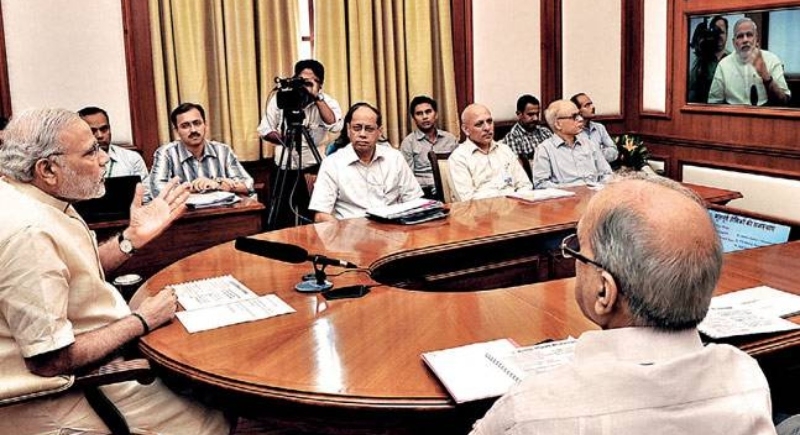
The government of Gujarat under Shri. Modi seems to have adopted this comparative approach to the economic sociology of development in the state. The entire discussion on this point of view leads to the consideration of globalization and its impact on economic development at the grass rot as well as the state level. Mauro F. Guillen concludes; comparative economic sociology seeks to reunite the fields of social stratification, organizational theory, and the sociology of development so as to better understand patterns of economic organization. This approach seems especially appropriate to tackle the problem of economic development because it cannot be analysed without taking social structure and organizational actors into account. Further work is necessary to show how comparative economic sociology can illuminate other questions in the field, including both production and consumption aspects of economic activity.”
(Source: Comparative Economic Sociology; Blending Social Stratification, Organizational theory, and the Sociology of Development, Mauro F. Guillen, The Wharton School & Department of Sociology, University of Pennsylvania, Prepared for presentation at the Latin American Studies Association Annual Meeting Miami, 2000)
Shri. Modi and his government seem to have been under the influence of this particular theory of eco-socio development which they considered essentially as part of dynamic of developmental administration.
And now it is the Prime Minister of India:
Armed powerfully with all the above-mentioned qualities, Narendrabhai Modi assumed the charge as the Prime Minister of India only to serve poor and the deprived ones. He deployed the entire public administrative machinery to serve the ‘haves-not’.
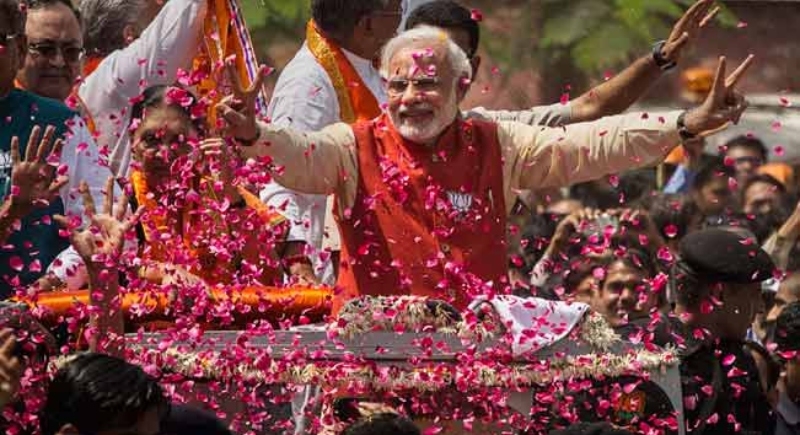
Night of the nightmare:
The signals of the dangerous future are flashed, not from the poor and the downtrodden, but from the better – off, power crazy, habitual defaulters in fiscal arithmetic, and lusty and the hungry few, who quietly in different forms, exploit the democratic fibre of the society. These new generations are unaware about the society in which these reside and quietly scratch these layers only to their advantage. The ’fortune-teller’ who had arrived in 2014, marched revolutionary strides in the policy formulation and implemented the new programmes with renewed vigour. The opponents who during their abusing sessions – both inside the Houses (of parliament) and outside in the streets, incessantly carried out false propaganda, inflicting a serious rift in the ranks as well, have sowed the seeds of anarchy. In fact, it was Modi who rose on the horizon of a most precariously volatile situation, determinately subscribed the self-mandatory socio-cultural principle of ‘nationalism’ – in every case the “Nation First”.

